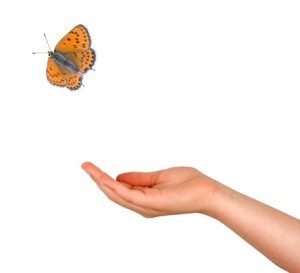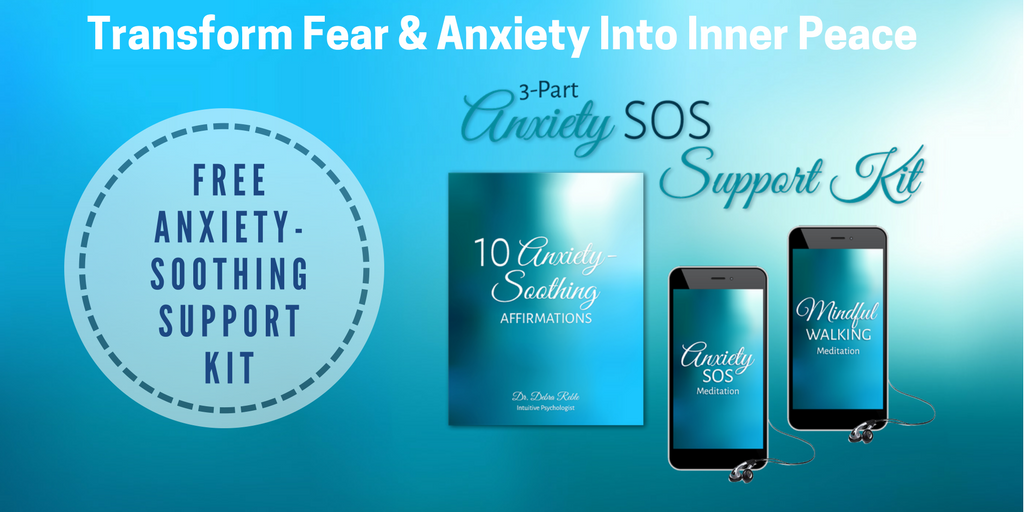 Co-dependent patterns often lure us into a parade of superficial relationships, emotional crutches we use to avoid our feelings of lovelessness and insecurity. We look for love and security outside of ourselves and in intimate relationships to distract us from feelings of spiritual disconnection. Such unhealthy relationships woven of the co-dependent patterns of two people keeps them from developing a whole and complete relationship with themselves.
Co-dependent patterns often lure us into a parade of superficial relationships, emotional crutches we use to avoid our feelings of lovelessness and insecurity. We look for love and security outside of ourselves and in intimate relationships to distract us from feelings of spiritual disconnection. Such unhealthy relationships woven of the co-dependent patterns of two people keeps them from developing a whole and complete relationship with themselves.
Our fear of spiritual disconnection is a universal experience. Painful feelings that we are unworthy of love occur early in life as a result of our disconnection with the divine source of who we are. Much of this disconnection stems from shame. In her ground-breaking research on shame, Brene Brown identifies shame as the “intensely painful feeling or experience of believing that we are flawed and therefore, unworthy of love and belonging.” Throughout our lives, we hear shame messages and eventually repeat them to ourselves such as, “I am bad,” “I’m not good enough,” or “I’m not worthy of love.” This cloak of shame keeps us from being seen, heard and spiritually connected with ourselves and others.
Unfortunately, the human condition is beset by personal suffering rooted in our fear of being unworthy of love. We may hold it differently from previous generations, but suffering still occurs as part of our collective human consciousness. We may even be addicted to the negative patterns of struggle and suffering, which only diminish our ability to create and sustain healthy relationships. In their extreme form, these patterns contribute to an identity structure such as caretaker, victim, or survivor.
This core belief of “I’m unworthy of love” erodes our sense of wholeness and prevents us from experiencing pure love and connection with ourselves and others. As a result, we numb our bodies, close down our hearts, and disconnect from our spirits. Most of all, we live in fear, insecurity, and shame because we think if anyone really saw us, they would not want or love us. So, we hide, resist and distract ourselves from our vulnerable pain of feeling unlovable.
Self-destructive patterns of co-dependency occur when we abandon personal responsibility and expect others to fill the void of love inside us. Displacing our need for love and connection onto someone else, we substitute a physical and emotional dependence for a spiritual connection. Then, feeling disconnected from ourselves and our source, we float through life waiting for someone else to define our purpose, give our life meaning and fulfill our insatiable addiction to love. We project this fantasy by shifting the responsibility for manifesting the real-life version onto someone else. Expecting someone to fulfill our dreams, we dismiss the power we have to create them for ourselves and then wonder why we feel perpetually disappointed and disconnected in our life. But eventually we have to discover that no relationship ever rescues us; we have to rescue ourselves.
Relationships in which neither person takes full responsibility for being loving and expressing love will perpetuate these co-dependent patterns. When we fail to satisfy our own need for love, it results in no one’s needs ever being fully satisfied. Instead of asking for or manifesting what we want, we become masterful at tolerating mediocrity in our relationships. Then, due to our patterns of needing to fix the other person or be fixed, we drain the life force out of the relationship.
Our longing for love and connection makes us susceptible to holding on and staying in unhealthy relationships. We all want to fall in love because in love we feel complete and not alone. To love and be connected is magical. However, we often become blinded by physical attraction and confuse this with unconditional loving and connected relationships with lifelong spiritual companions. The foundation for cultivating soul-connected loving relationships begins loving and opening up a deep spiritual connection to ourselves.


Yes Debra we have to look within first and heal , love and grow from there, then we can embrace others more fully with true love and compassion xx
Yes we do Suzie…thank you for your wise words and bright being. Blessings Debra
Debra
This is a truly excellent and direct explanation of the unhealthy dynamic of co dependency. I am extricating myself from one right now. Last weekend I did a Family Constellation piece of work and that seemed to shift something big for me in this area, so anyone interested could do a search on that. Thanks for writing this! Just what I am working on.
Thank you Michelle for your vulnerable words and I’m happy that my article came to you in divine timing. Blessings on your journey…Debra
Debra, this is great advice and I shared it with my Twitter followers. Having had my share of codependent relationships, I could really relate! And you’re right…using a person to fill your spiritual emptiness is just like using a drug. Any addictive clinging to something else does not serve us. Turning within is the answer. @GoddessKerriLyn
Thank you Kerri Lyn…I so appreciate your share and glad that you found the article insightful. Yes tuning is always the answer. Blessings Debra
Debra, a great writing on codependent patterns and the results of living them out. In the past, I was looking for love in all the wrong places, until I turned within and let go of the fear.
Thank you Lisa. I could write this because I’ve looked for love in all the wrong places too until I came back to me as the source of love. Blessings and love Debra
So much truth in this article! Thanks, Debra.
Thank you Shannon blessings Debra
I have been single for a very long time since my second divorce. It has taken me this long to learn to love myself the way I am and to take full responsibility for my own happiness. I’m okay with it all now and my two kitties and I live a life filled with love and compassion for each other and the world.